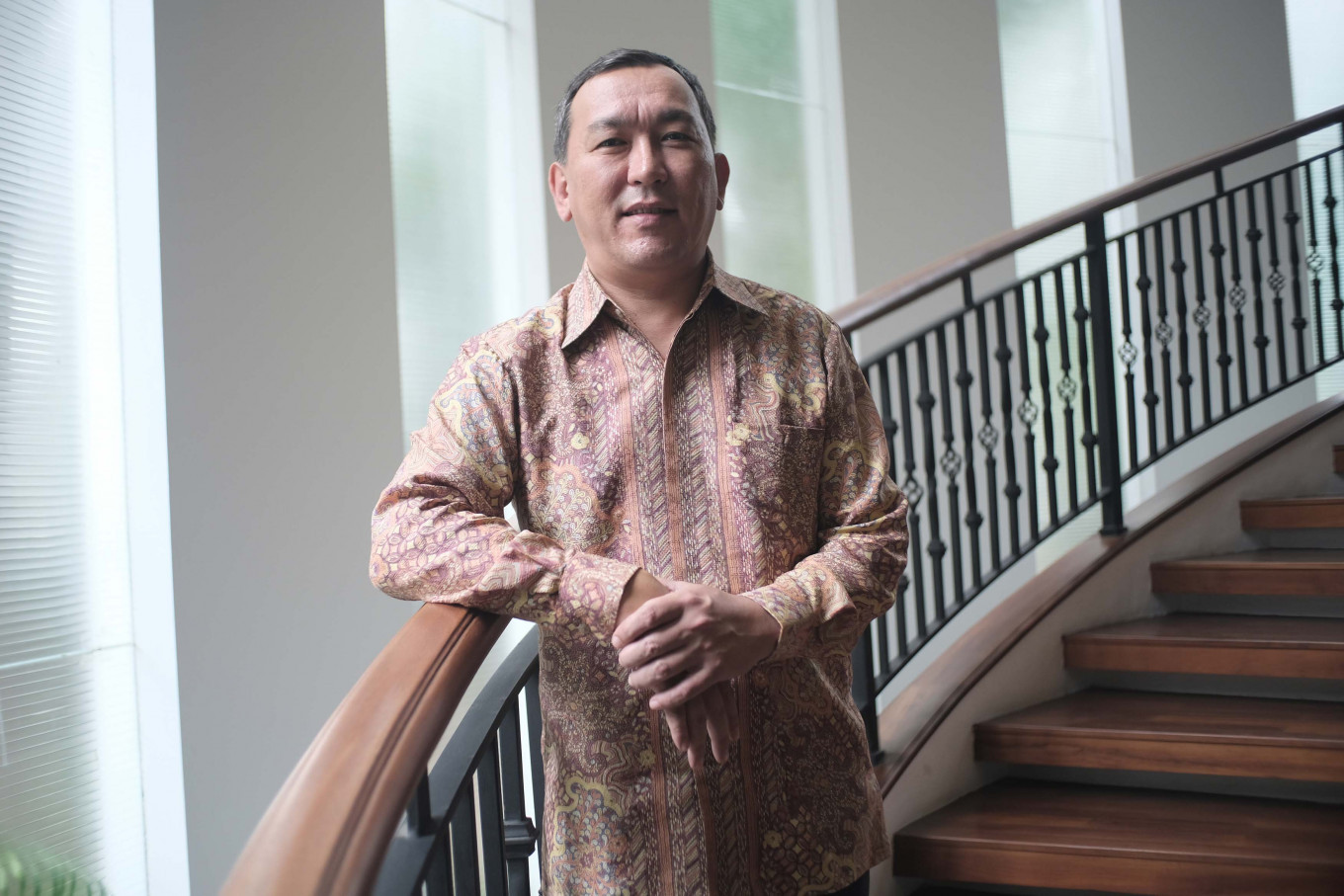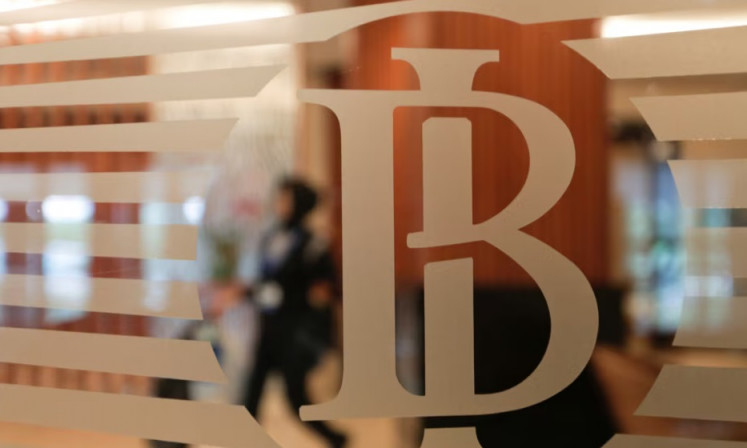Popular Reads
Top Results
Can't find what you're looking for?
View all search resultsPopular Reads
Top Results
Can't find what you're looking for?
View all search resultsDiscourse: Nur-Sultan, a gift for Kazakhstan’s independence
Daniyar Sarekenov (JP/Donny Fernando)Six years after breaking away from the Soviet Union, Kazakhstan made the risky decision of moving its capital from Almaty to Astana in 1997
Change text size
Gift Premium Articles
to Anyone
Daniyar Sarekenov (JP/Donny Fernando)
Six years after breaking away from the Soviet Union, Kazakhstan made the risky decision of moving its capital from Almaty to Astana in 1997. The ambitious development was completed three years after it started in 1995 when the nation’s economy was still at its nadir. In 2019, Astana was renamed Nur-Sultan to honor Kazakhstan’s first president and went on to become one of the most modern cities in all of Central Asia. The Jakarta Post’s Apriza Pinandita met with Kazakhstan Ambassador to Indonesia Daniyar Sarekenov to talk about the country’s experience in moving its capital city. Below are excerpts from the interview:
Question: Could you tell us the reason why your government decided to move the capital?
Answer: The idea to move the capital from Almaty belongs to our first president, Nursultan Nazarbayev. It had become his idea since we became independent in 1991.
There are many reasons. First, Almaty was already overpopulated. In 1994, it was the first time the president announced the idea, [just as] Almaty reached a population of 1 million. For Kazakhstan, [a nation] with a total population of 14 million, it is a big number.
Also, because Almaty is surrounded by mountains, there was not enough opportunity for growth. Meanwhile, as a newly independent state we faced challenges – we have had to build new government offices, foreign missions, banks and so on. Almaty was not a good option for that.
Another reason is that it is in the southern part of Kazakhstan. It is difficult for an independent country to manage such a big country like Kazakhstan from the outskirts of the country. It would be easier [to govern] from the center. This idea [was not conceived in] the president’s mind suddenly; he had been studying the international experience.
Also, on the matter of securing the country, it is better to not have the capital so close to the border.
How did the people react to the plan at the time?
For the first time, when our president announced the idea to the parliament in 1994, not everybody was happy. In 1994 – only three years after independence – the economic situation was very bad. We were in a crisis; the inflation rate reached 2,000 percent and the unemployment rate reached 10 percent. Our gross domestic product was declining every year.
Of course, the people had questions; ‘Why in this difficult time do we have to move the capital to another city?’ It was a very ambitious but costly project. But our president convinced everybody that we needed to move the capital because a newly independent country like us needed a new capital.
In 1995, the president signed a presidential decree on the new capital and a decision was made. In the end, people had to accept that we had to move.
In the beginning, not many people thought that the president could move the capital quickly – they thought maybe it would take 15 to 20 years. But he was very determined. He knew what he was doing and knew that this was better for the country.
There are differences in climate between Almaty and Astana. How did your government account for this in the plan to move the capital?
It is one of the challenges. Almaty is more comfortable as the climate is much milder but Astana (Nur-Sultan) is colder and windy and what we did was we planted thousands of hectares of trees in the middle of such a great steppe region.
Did the move live up to expectations?
Well, we did not just move the people and build a new capital, we had a master plan. In 1997, the first ministries started moving to Astana. It was not the whole government but around 3,700 people, around 20 to 30 percent of the staff. In 1998, Astana was presented to the world community. It was the same year we renamed the new capital from Akmola to Astana. In 1998, the government announced an international competition for further development.
In the beginning, we had a small town on one side of a river. The new city was built from scratch; now it is well developed.
Why does Kazakhstan like to rename its capital?
The new capital had a few names before. We have changed it many times. Before, it was called Akmola, but the meaning of it is controversial, and some people translate it in different ways. So, we then renamed it to Astana, which means “capital”.
Last year, we renamed it again to honor our first president Nursultan Nazarbayev. The second president, Kassym-Jomart Tokayev, offered to rename the capital. The parliament and the people of Kazakhstan accepted and supported this.
What are your thoughts on Kazakhstan assisting Indonesia in building a new capital?
During my first meeting with President Joko “Jokowi” Widodo, I mentioned our experience and he was interested. We are ready to share our experiences, for Indonesia to study our case including areas such as the infrastructure for the power supply and water supply, but also social infrastructure and smart city elements.
It is very important to not forget the social infrastructure. The people should feel comfortable with the existence of hospitals, restaurants, shopping malls and so on.
Also, the two countries have a good relationship. Indonesia is the largest economy in Southeast Asia while Kazakhstan is the largest in Central Asia. Our government is ready to expand cooperation in different spheres.
We invite Indonesian businesspeople to come to Kazakhstan to look for opportunities. Kazakhstan can become a hub for Indonesia in Central Asia.










